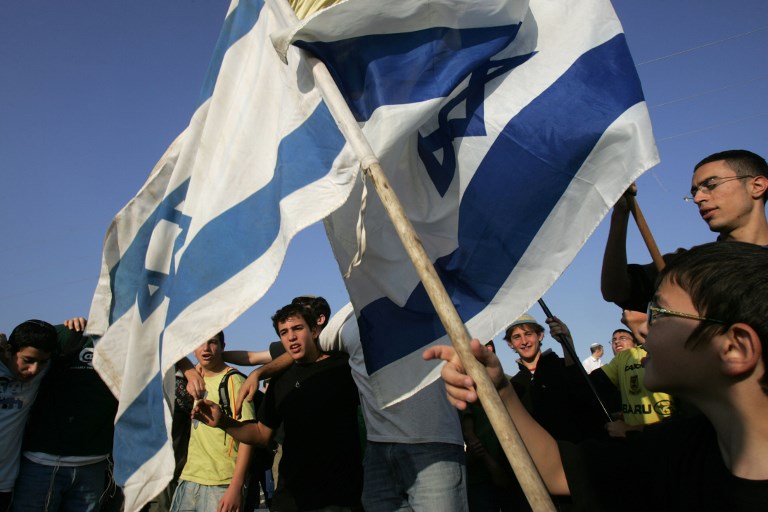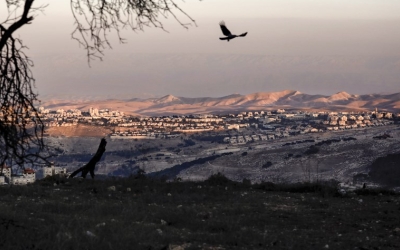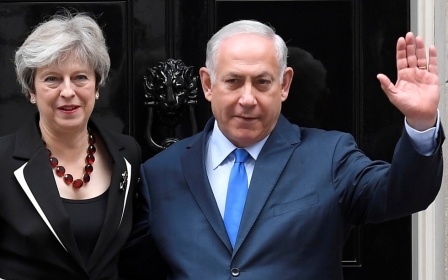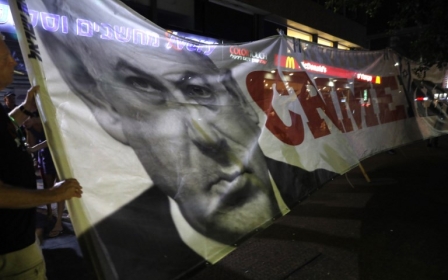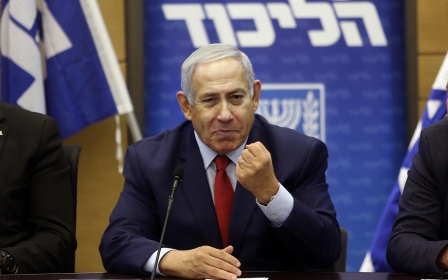Nightmare neighbours: What if a religious settler project took over Britain?
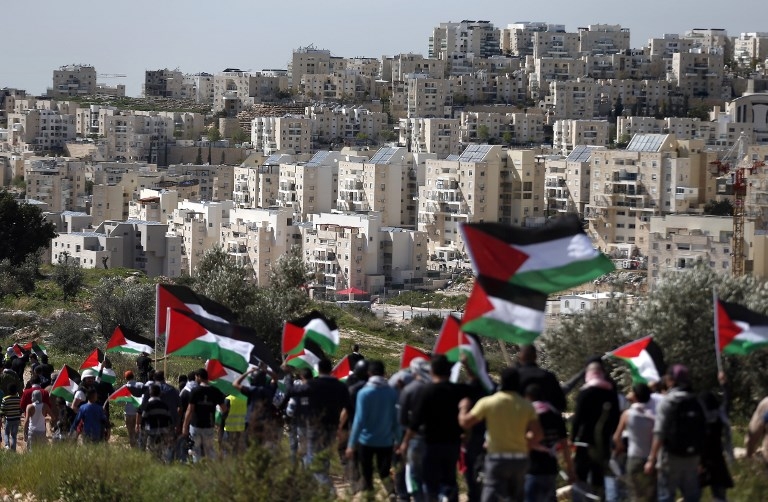
The UN Human Rights Council this month delayed publication of a promised database of companies complicit in Israel’s illegal settlement enterprise.
Indulge me while I develop this scenario for you.
Imagine a situation in which an extremist British government introduces a law which determines that only British Christians have a right to self-determination in the country, and that settlements built only for Christians should be encouraged.
At a stroke, non-Christian Brits are explicitly turned into second-class citizens. Communities with majority Christian populations set up “admissions committees”, to which those wishing to move need to apply for admission, which can be refused. Sound bizarre? Read on.
'The land is theirs'
New MEE newsletter: Jerusalem Dispatch
Sign up to get the latest insights and analysis on Israel-Palestine, alongside Turkey Unpacked and other MEE newsletters
One morning, you wake up and look out your window, only to find that a group of strangers have forced their way into your back garden, cordoned part of it off and started digging. You challenge them, and they tell you that this is Christian Britain, and as Christian Brits, they can build anywhere because “the land is theirs”.
You politely ask them to leave, but they refuse. Instead, they begin to lay foundations, and a truck brings a caravan, into which they move. You try to rip out the fence they have set up, but a couple of burly, armed security guards appear, threaten you, and move the fence further towards your home so they can set up their caravan and toilet. They will likely be there for some time.
Your children are in tears after discovering that the squatters took over the part of the garden that was their playground
In despair, you call the police, hoping they will rush to your aid - but instead, they side with the squatters. You remind them that this is your land and your home, but to no avail.
They tell you to challenge the squatters in the courts. You call your neighbour to tell her what happened, only to find that she has suffered the same fate. You quickly realise that your whole neighbourhood has been taken over by people to whom it does not belong.
Your children return from school, only to find that the squatters have set up a checkpoint to control movement in the neighbourhood, and hired a security company to man it. Your children are in tears after discovering that the squatters took over the part of the garden that was their playground.
Slow wheels of justice
One of your neighbours is particularly upset, because not only did the squatters take part of his land to build a home - they took another part to build a road linking to the main road, and told your neighbour that only they can use it. To make identification of the squatter vehicles easier, they replace the traditional white number plates with yellow ones.
The wheels of justice turn very slowly, as the date for your court hearing is continuously postponed.
On your TV screen, you see politicians celebrate the growth of the squatter colonies; some even move into them, proclaiming that this is what Britishism is about: “liberating the land for Christian Brits”.
A court hearing is scheduled in six months. The squatters turn more violent as they harass the residents, and their numbers grow. They are clearly trying to make your life so miserable that you will leave.
The court rules in favour of the squatters, but orders the fence in your garden to be moved a few yards away from your home. You wake up every morning and go to sleep every night humiliated and angry. Exacerbating matters, the squatters build a playground and a pond for their children on your land.
You try explaining to your upset and terrorised children, who now need to be accompanied to and from school, why this has happened and that it is wrong. You tell them that you are confident the squatters will all leave one day, as what they did was illegal, and you promise that you will build them an even better playground.
Turning a blind eye
But when police find out from the school that your children have been telling their friends the squatters have no right to be there, they arrest you, accusing you of inciting your children to hate the squatters. As punishment, they turn a blind eye when the squatters move their fence to take over more of your land. Now, they are within yards of your house.
The caravan has now been exchanged for a house, and your water is used to maintain the freshness of their manicured lawn, while your home receives water once a week, forcing you to buy a water storage tank.
Fearing eviction and losing hope that the courts will uphold their rights, the community calls on those who support justice to help. You ask the international community to step in, but no one seems eager to upset Christian Britain, regarding this as an “internal British matter".
Your community decides to build a database of complicit entities to shame the banks that supplied the funds, not only for the squatter homes, but now for their businesses; and the companies that supplied the construction materials, electricity and internet access that have allowed the squatter colonies to thrive.
An international human rights committee takes up the cause and promises to publish this database. The community is elated: finally, a peaceful way to pressure these companies into cutting ties with the colonies.
International complicity
But the squatters object, and their supporters pressure the committee to delay the database’s publication. They accuse it of bias against Christian Britain and claim there are other “disputes” it should focus on first.
Fearing a backlash, the committee delays publication for “technical reasons”. The squatters and the complicit entities breathe a sigh of relief and return to business as usual. In fact, the squatters take more land and even offer jobs to the residents - a source of cheap labour. Some take them up on it, as the economy has been damaged by the squatter enterprise.
Israel’s land grab continues to this day, making it impossible for Palestinians to attain justice, freedom and equality
This scenario might sound bizarre and far-fetched, but it brings home to a British audience what is happening to the Palestinian people. What I describe is their dispossession and continued humiliation.
Israel’s land grab continues to this day, making it impossible for Palestinians to attain justice, freedom and equality, seven decades after Israel’s creation and the expulsion of 750,000 Palestinians to make way for a Jewish majority.
The injustice should be blindingly obvious. Yet it continues unabated, as the UN’s delay in publishing the settlement blacklist came amid pressure from Israel, the US and other apologists for Israeli apartheid, dispossession and oppression.
The views expressed in this article belong to the author and do not necessarily reflect the editorial policy of Middle East Eye.
Middle East Eye delivers independent and unrivalled coverage and analysis of the Middle East, North Africa and beyond. To learn more about republishing this content and the associated fees, please fill out this form. More about MEE can be found here.



